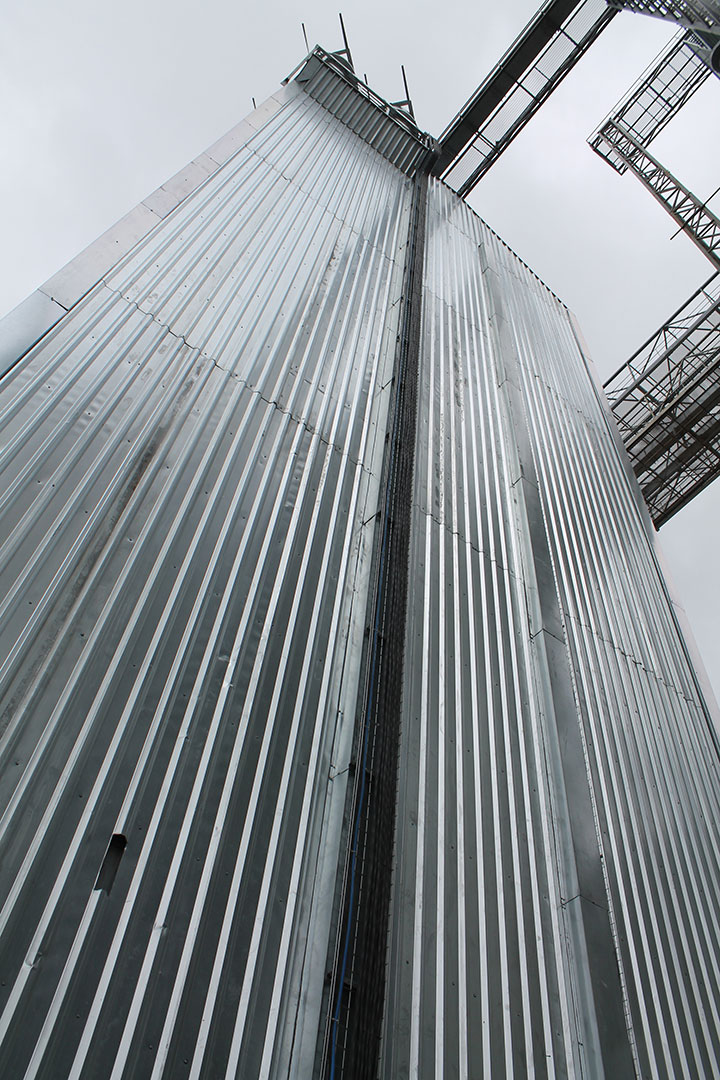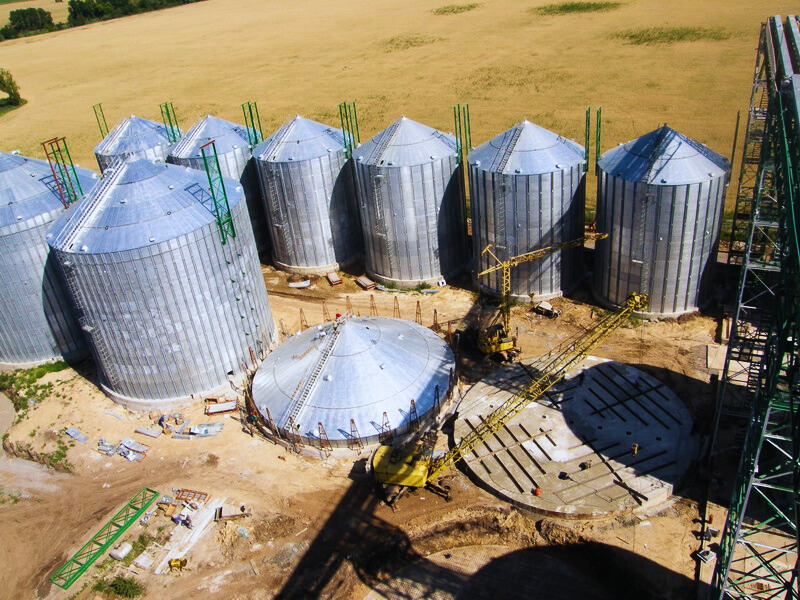
News and events

KMZ Industries specialists conducted a training seminar for NIBULON employees on the specifics of storing and drying niche crops
17.06.2025
At KMZ Industries, we understand how critical elevator personnel qualifications are — after all, almost 99% of errors in the agricultural storage process occur due to the human factor. That is why we genuinely value and support when agricultural producers invest in the development of their teams. It is especially encouraging to see systematic educational initiatives from companies like NIBULON — one of the largest agricultural producers in Ukraine. We hope their example will inspire other market players as well.
This time, our experts conducted an online seminar for NIBULON employees dedicated to the peculiarities of storing and drying niche crops — peas, buckwheat, rye, mustard, flax, oats, and millet. Working with these crops is more complex than with traditional grains, and therefore requires special technological attention.
“Thank you to KMZ Industries for an interesting and insightful training. For us at NIBULON, such events are especially valuable in times of uncertainty. They help us stay alert, respond quickly to modern challenges, and meet today’s demands. Supporting the professional level of our employees is that essential balance between company development and personal growth, which ensures our competitiveness — both as a business and as a team,” — said Valeriy Reutsoy, Head of Grain Storage Complex Operations at NIBULON.
Storage — simple and to the point
The seminar was opened by Roman Shtelmakh, Director of Customer Service Department at KMZ Industries, who spoke in detail about the biological and technological characteristics of niche crops. Each of them has specific “requirements” for storage:
- Peas are highly sensitive to mechanical damage and self-heating. Even falling from a height of 3 meters results in up to 7% loss in grain quality.
- Rye quickly absorbs moisture from the air and requires high-quality cleaning.
- Mustard and flax are oil crops that must be handled very carefully due to the risk of self-heating and their high cost.
- Millet and oats are hygroscopic, small-sized, and prone to spoilage. They require specific ventilation conditions.
- Buckwheat has a specific grain shape, is easily damaged, and very sensitive to odors.
“These crops are harvested almost simultaneously — in summer,” — Roman noted. “Which means that the grain storage complex must be ready to receive and store multiple batches in parallel without route overlap.”
Drying: the key to quality
Anton Honcharuk, KMZ Industries regional representative with vast experience in drying various crops, shared practical tips on drying niche crops. According to him, the main task is to avoid grain overheating:
“The key is not to rush. Drying must be slow and controlled. For instance, peas should be dried at 45–50°C with a smooth temperature increase. Otherwise, you’ll get split halves instead of marketable grain.”
Anton also emphasized the importance of choosing the right equipment. Among all types of dryers, shaft and conveyor dryers are best suited: they allow for stable temperature control and do not damage the grain.
“A dryer is not just a machine. It must operate in tandem with the technologist and operator. It must ‘feel’ the crop,” — the expert concluded.
Intelligent process management
The seminar concluded with a presentation by Maksym Tyutyunnykov, software engineer at the Automation and Electrification Department of KMZ Industries. He presented an automated control system for drying complexes. Thanks to this system, operators gain full control over the process: from selecting the crop to remote monitoring via a Telegram bot.
KMZ Industries’ automated control system features an intuitive interface, a history log of changes and parameters, and remote access from anywhere in the world.
“All operator actions are logged. You always see how exactly the batch was dried — the temperature, moisture, gas consumption. This is digital transparency and quality control,” — noted Maksym.
KMZ Industries not only supplies modern grain storage complex equipment but also provides technical support and personnel training. These initiatives enhance the efficiency of Ukrainian agricultural production and reduce the risks of loss during storage and processing.
The seminar was organized by the Standard Innovation Group™ Training Center.
POPULAR
ПОНАД 5000 ПРОЄКТІВ
ВТІЛЕНО В СВІТІ
CONTACTS
HEAD OFFICE
+38 (05346) 221 38
2 Sergii Nihoian St., Karlivka, Poltava region, 39500, Ukraine
SALES OFFICE
+38 (050) 435 76 97
sales@kmzindustries.ua ,
2V Mykilsko-Slobidska St., office 157, Kyiv, 02002, Ukraine







